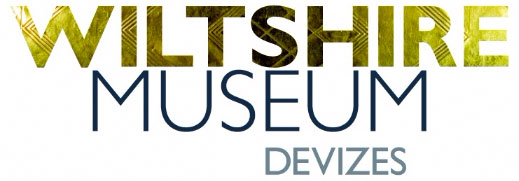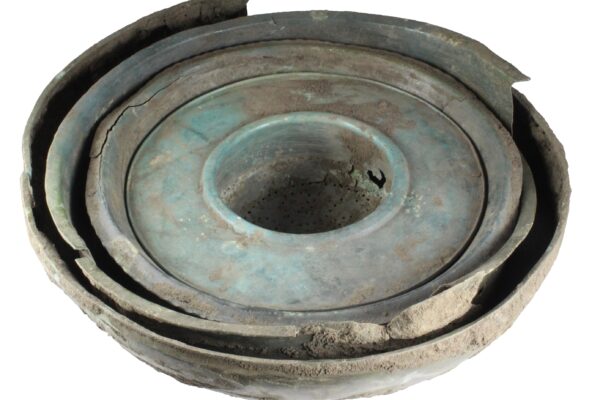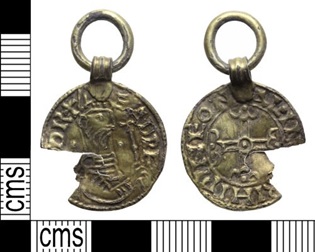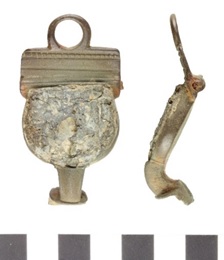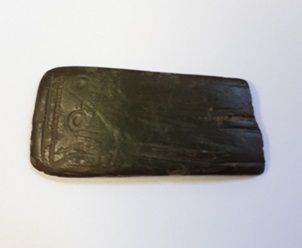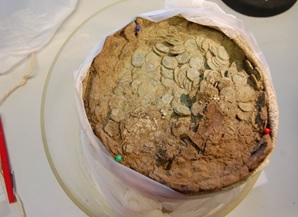Reporting finds, Treasure and the Portable Antiquities Scheme
The Portable Antiquities Scheme is run by the British Museum and Amgueddfa Cymru - National Museum Wales to encourage the recording of archaeological objects found by members of the public in England and Wales. Every year many thousands of archaeological objects are discovered, many of these by metal detector users, but also by people whilst out walking, gardening or going about their daily work. Finds recorded with the Scheme help advance knowledge of the history and archaeology of England and Wales. We encourage the adoption of the Code of Practice for Responsible Metal Detecting, while recognising the Code of the National Council for Metal Detecting which encourages the voluntary reporting of finds.
Under the Treasure Act 1996, finders must by law report finds of potential Treasure: the definition of Treasure can be found here. It is normally the case that such finds are reported to the relevant Finds Liaison Officer, who is able to provide further advice and guidance on the process.
The Act allows a national or local museum to acquire Treasure for public benefit. If this happens a reward is paid, which is normally shared equally between the finder and landowner. Rewards are set at the full market value, determined by the Secretary of State who is advised by an independent panel, the Treasure Valuation Committee. Finders or landowners sometimes do not claim their reward, thereby enabling museums to acquire finds at reduced or no cost.
We are especially grateful to those who have reported objects through the Portable Antiquities Scheme and donated finds to the Museum.
For more details of the PAS and Treasure, please see the Portable Antiquities Website at www.finds.org.uk.
Sophie Hawke is the Finds Liaison Officers for Wiltshire and is based at The Salisbury Museum. To discuss recording your finds, please contact her at The Salisbury Museum - telephone: 01722 332151, email: pas@salisburymuseum.org.uk. Find out a bit more about her work from her Salisbury Museum blog post.
August 2023 - see the DCMS leaflet outlining changes to Treasure that have just come into force.
50 Finds from Wiltshire - available from our online shop
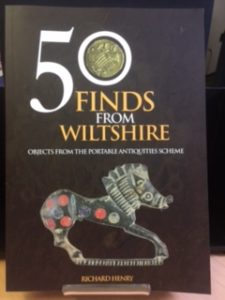
by Richard Henry
Every year around 5,000 archaeological objects from Wiltshire are recorded by the Portable Antiquities Scheme. These finds are made by members of the public and each object on the database has a story to tell. Each is a link between us and the past. Every article was once designed for a purpose, and thought has gone into its construction.
50 Finds from Wiltshire focuses on the stories that these objects can reveal, informing us about civil unrest, wars, religion, trade, the economy, or a unique insight into daily life. 12 of the objects featured in the book are now in the collections of the Wiltshire Museum, many donated by those who found them.
Responsible detecting
Items recorded through the PAS in the Museum collections
Wilcot Hoard of Roman vessels
We have just acquired an important hoard of four bronze vessels, probably buried at the end of Roman Britain, 1,600 years ago. They vessels were
Saxon coin pendant – Edward the Confessor
Silver Anglo-Saxon penny of Edward the Confessor, modified into a pendant. The penny was struck by the moneyer Beorhtwine at the Wallingford mint. It is
Colchester brooch
Roman copper alloy Colchester derivative developed T-shaped brooch, probably dating to AD 75-200. An unusual find with lead inlay. Found in Bremhill, 2019. Donated to
Roman armilla
Fragment of a decorated copper alloy Roman penannular bracelet, probably the terminal of an armilla, dating to AD 43-99. Similar bracelets have been identified as
Roman coin hoard
Hoard of 2,384 Roman copper-alloy coins from Pewsey. The group consists of mostly 4th century (330 – 348 AD) nummus and a small number of

